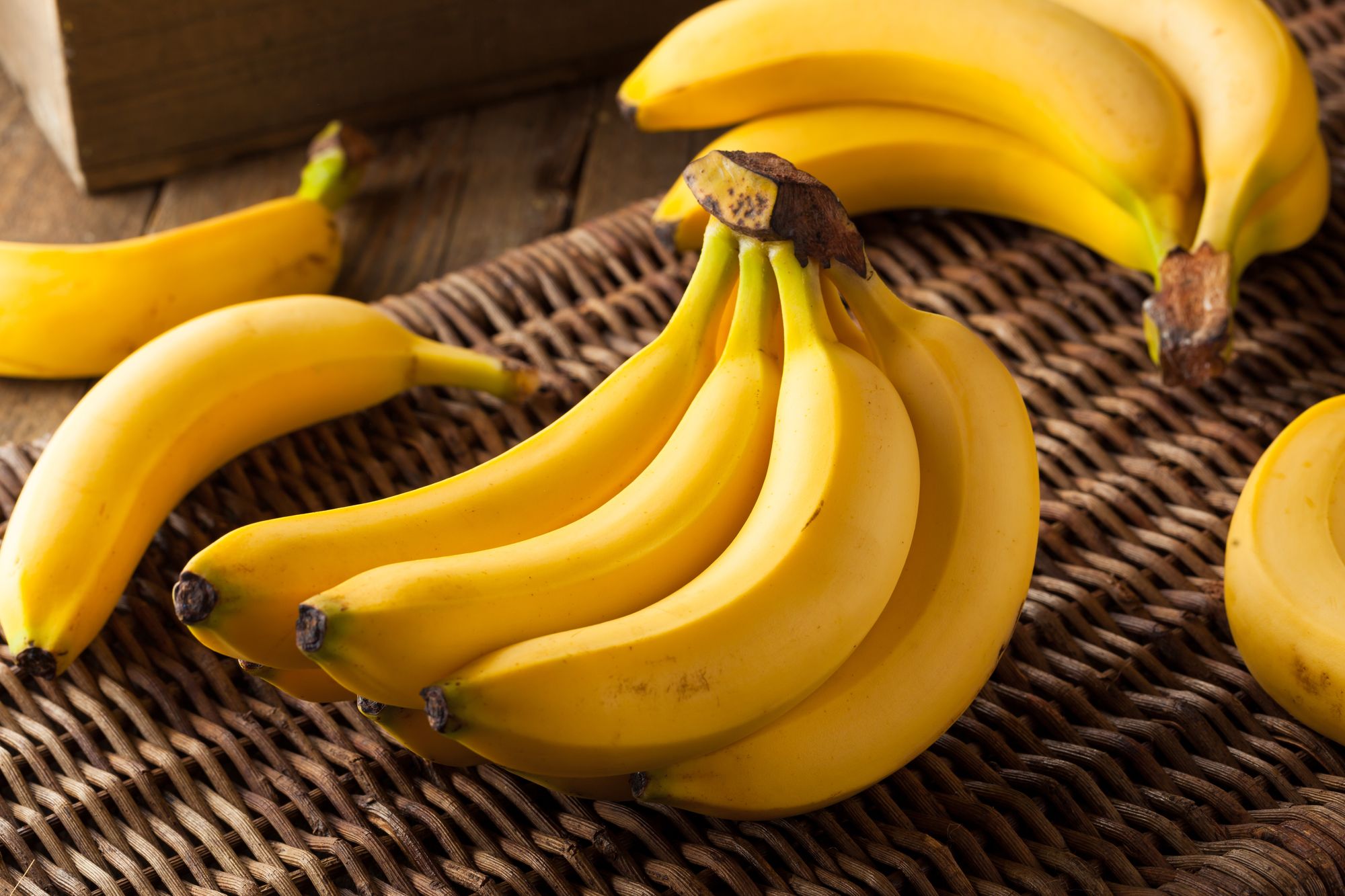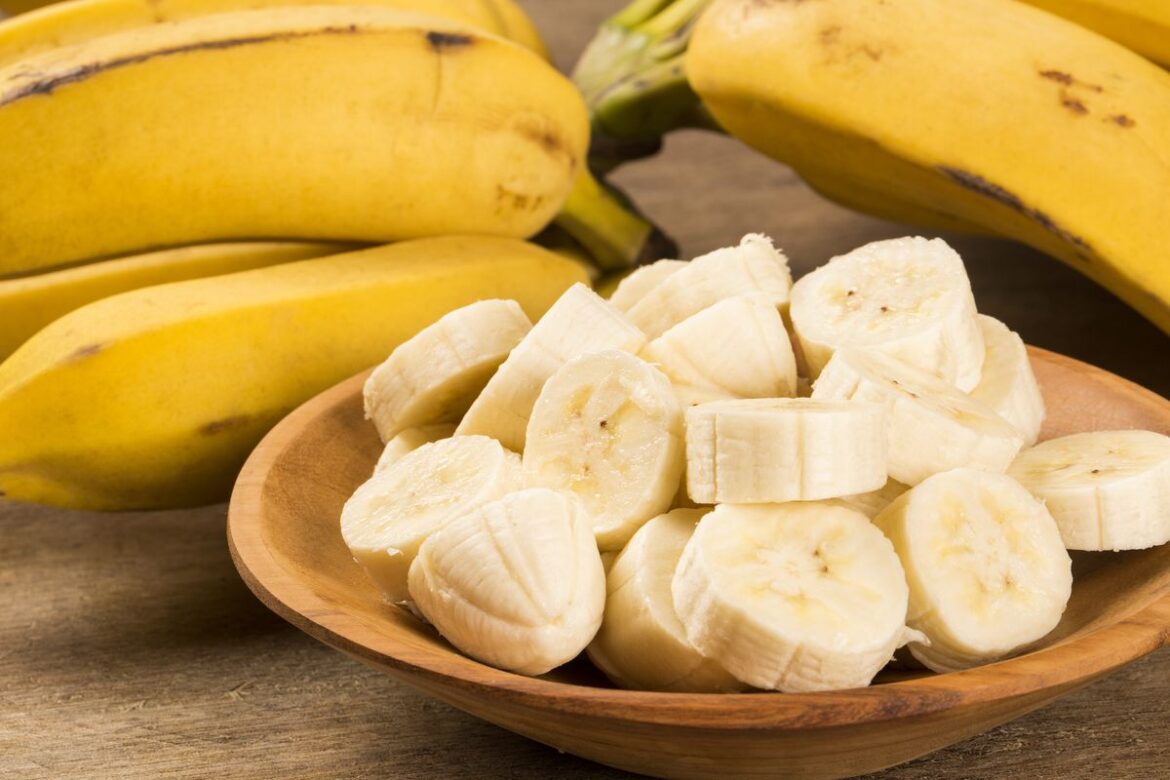If you’ve ever ventured into a bodega in New York City, you know how challenging it can be to find a nutrient-rich snack in these stores that carry everything. However, fresh and delicious bananas are always a dependable option when you need a quick, healthy breakfast on the go and have limited time and budget.
Bananas are versatile and nutrient-dense, making them an ideal snack or ingredient to enhance the nutritional value of any recipe. But what are the specific health benefits that come with consuming this small tropical fruit?
To answer this question, we conducted research and consulted nutrition experts. Here are some of the benefits of eating bananas:
- Nutrient-rich: Bananas contain essential nutrients such as dietary fiber, vitamin C, vitamin B6, and potassium.
- Heart-healthy: The potassium in bananas helps regulate blood pressure, reducing the risk of heart disease.
- Improved digestion: The fiber in bananas promotes regular bowel movements, reducing the chances of constipation.
- Increased energy: Bananas contain natural sugars, making them an ideal pre-workout snack that can boost energy levels.
- Weight loss aid: Bananas are low in calories and can create a feeling of fullness, helping to reduce overeating.
Bananas are also a versatile ingredient that can be used in various recipes, such as smoothies, oatmeal, or even grilled for a dessert.
If you want to learn more about the benefits of consuming fruits, check out “What Happens to Your Body When You Eat Figs.”
Exploring the Nutritional Value of Bananas

These fruits are fiber-rich with a low-calorie count, and packed with vital nutrients and minerals. The U.S. Department of Agriculture states that consuming an average-sized banana, weighing approximately 126 grams, can provide the following nutritional value:
- 112 calories
- 1.37 grams of protein
- 0.41 grams of fat
- 28.8 grams of carbohydrates
- 3.28 grams of total dietary fiber
- 15.4 grams of natural sugar
- 1.26 milligrams of sodium
- 11 milligrams of vitamin C
- 6.3 grams of calcium
- 0.33 grams of iron
- 34 milligrams of magnesium
- 27.7 milligrams of phosphorous
- 0.84 milligrams of niacin
- 451 milligrams of potassium
In addition to its fiber content, consuming a banana can also provide your body with a range of essential nutrients and antioxidants that fortify your cells against free radicals. These include selenium, choline, calcium, vitamin A, folate, vitamin B6, copper, zinc, carotene, vitamin K, and riboflavin.
Benefits of Adding Bananas to Your Diet
To gain a better understanding of how this popular fruit impacts overall health and wellness, we consulted with nutrition experts and members of our Expert Medical Board, including Amy Goodson, MS, RD, CSSD, LD, author of *The Sports Nutrition Playbook*, and Lauren Manaker, MS, RDN, registered dietitian and author of *The First Time Mom’s Pregnancy Cookbook* and *Fueling Male Fertility*.
According to Manaker, “This fruit can be a healthy component of a balanced diet. It is a natural source of carbohydrates, provides essential micronutrients, and is a good source of fiber.”
Goodson agrees and further elaborates on its benefits: “It’s rich in fiber, potassium, vitamin B6, and antioxidants. Fiber is crucial for maintaining overall health, including gut and heart health. Unfortunately, many people don’t meet the recommended daily intake of fiber, which is 21-25 grams for women and 30-38 grams for men.”
In conclusion, incorporating this nutritious fruit into your diet can provide essential nutrients and fiber that promote gut and heart health.
What is the Recommended Daily Intake of Bananas?
While there is no hard and fast rule about the exact number of bananas or any other fruit you should consume in a day, Goodson explains that the Dietary Guidelines for Americans recommend 2-4 servings of fruit per day, and half a banana constitutes one serving.
Manaker adds that the recommended daily intake of fruit varies between 1.5 to 2.5 servings for most adult Americans, depending on certain factors. Therefore, the number of bananas or any other fruit that an individual can consume in a day depends on their total fruit consumption.
As per Goodson, consuming one medium banana can provide two servings of fruit.
Exploring the Health Benefits of Consuming Bananas
Here are 8 science-backed benefits of bananas.
1) The Role of Bananas in Regulating Blood Pressure
Bananas are known to regulate blood pressure levels due to their high potassium and low sodium content, as per some research.
Goodson explains, “The presence of potassium in bananas may aid heart health and benefit individuals who intend to lower their blood pressure.”
Similarly, Manaker highlights the significance of potassium as “a vital nutrient that promotes heart health.” Consequently, consuming this fruit can reduce the risk of heart attack and stroke.
2) Effect of This Fruit on Blood Sugar Regulation
Despite their natural sweetness, bananas can actually help maintain healthy blood sugar levels, which contributes to their charm and popularity.
Research suggests that bananas have a low glycemic index, making them beneficial in regulating blood sugar levels and reducing the risk of type 2 diabetes. As per Trista Best, MPH, RD, LD, at Balance One Supplements, “Bananas can help maintain healthy blood sugar levels.”
3) Potential of Bananas to Reduce Free Radicals
Bananas, like several other fruits and vegetables, contain essential antioxidants that play a crucial role in fighting against free radicals, according to Goodson.
This is particularly significant since the accumulation of free radicals in the body over time can lead to chronic inflammation and diseases. “Antioxidants in bananas may help combat this damage,” adds Goodson.
4) Support Healthy Bowel Movements
Fiber is often recommended by healthcare professionals to ease constipation and promote healthy bowel movements. In this regard, the incredible fruit can prove to be a great source of dietary fiber.
As per Goodson, pectin, a type of fiber present in ripe and unripe bananas, can be particularly beneficial for supporting healthy bowel habits. It helps soften stools, thereby preventing constipation.
5) Bananas’ Potential to Enhance Digestion and Gut Health
Consuming this fruit can be advantageous for digestive health in addition to aiding in bodily waste excretion.
Best explains these fruits are a rich source of dietary fiber, promoting regularity and aiding digestion.
Additionally, the resistant starch content in unripe bananas acts as prebiotic fiber and supports gut health by feeding the good bacteria in the gut, according to Goodson.
Research indicates that consuming this fruit twice daily before meals may help reduce bloating, as potassium helps reduce fluid retention in the body while increasing the quantity of bloat-fighting bacteria in the gut microbiome.
6) The Potential of This Fruit to Aid in Muscle Building and Exercise Recovery
In addition to regulating blood pressure, this fruit is beneficial for building and recovering muscles. Potassium, an essential electrolyte mineral found in bananas, offers numerous advantages for the body. According to the NIH National Cancer Institute, potassium ions help transport nutrients into cells, eliminate waste, and support the functioning of nerves, muscles, heart, and brain.
Nutrition expert Goodson suggests that this fruit makes an excellent snack for athletes and those who exercise, as it helps replenish electrolytes lost through sweat, thereby reducing muscle cramps post-workout. Additionally, magnesium, another nutrient present in this fruit, supports muscle contraction, relaxation, and protein synthesis, which is crucial for developing lean muscle mass, according to research.
7) The Potential of This Fruit to Enhance Energy and Aid in Weight Loss
This nutritious option can naturally boost energy levels due to its natural sugar content. Best explains that it contains glucose, fructose, and sucrose, providing a quick energy lift. Research also indicates that magnesium found in this fruit enhances its energizing properties. Magnesium plays a role in healthy metabolic function and lipolysis, a physiological process that converts stored fats into energy. Therefore, it may also assist in weight loss.
8) The Potential to Reduce the Risk of Heart Disease
The high potassium content in this fruit can potentially lower the risk of heart disease by helping to regulate blood pressure, according to Best. Goodson further supports this assertion, noting that research indicates individuals who consume potassium-rich diets are at a lower risk of heart disease. A medium-sized piece provides 10% of the daily value of potassium, making it a valuable addition to any diet. Moreover, Goodson highlights the importance of magnesium, an essential mineral for heart health, stating that a deficiency in magnesium may contribute to the development of heart disease.
Are you interested in discovering some delicious dishes using this versatile fruit? Click here to explore tasty recipes! https://www.bbcgoodfood.com/recipes/collection/banana-recipes
Additionally, are you ready to spice up your mornings? If you’re looking for some mouthwatering breakfast ideas that will get your day off to a fantastic start, click here for some exciting recipes! http://beautyfemina.com/indulge-in-the-savory-side-of-breakfast-ideas/

